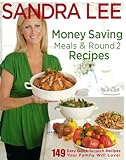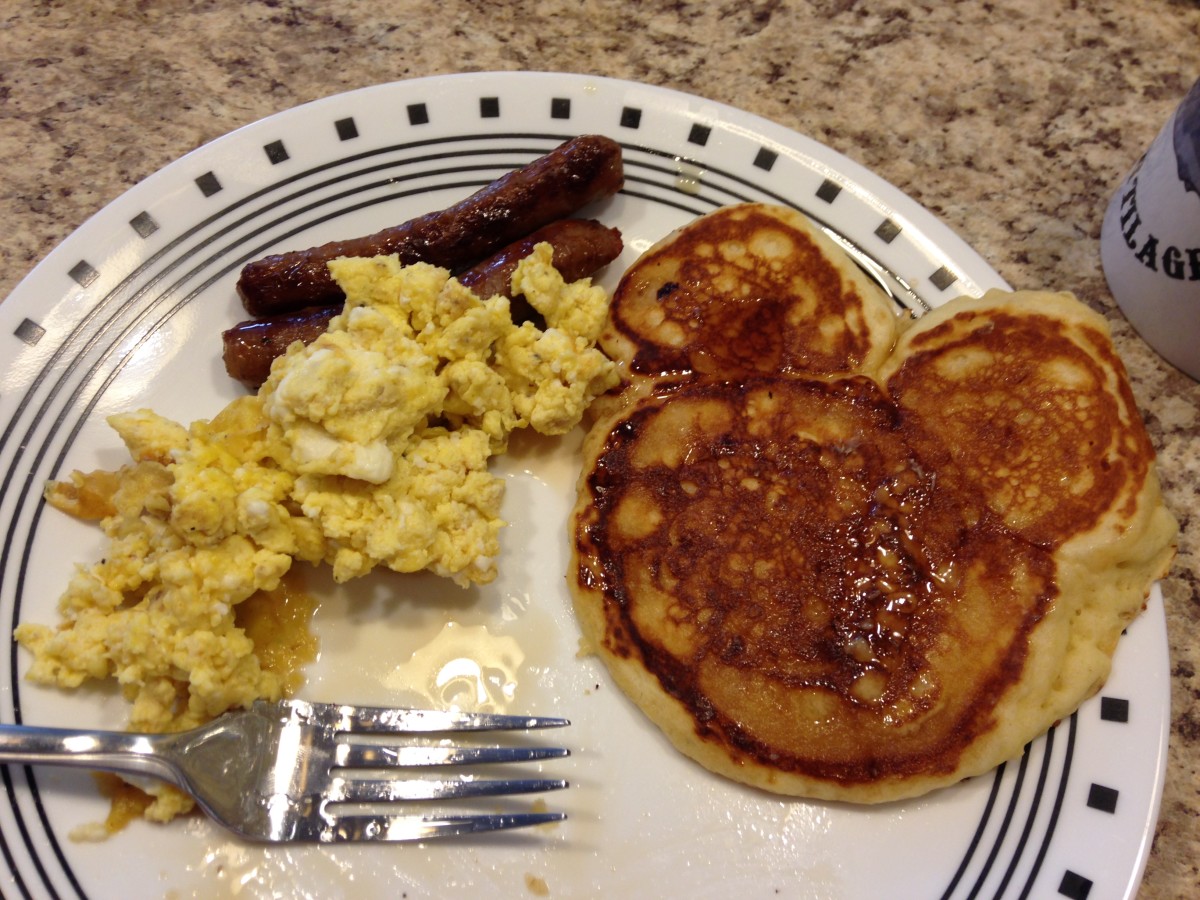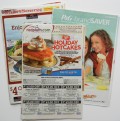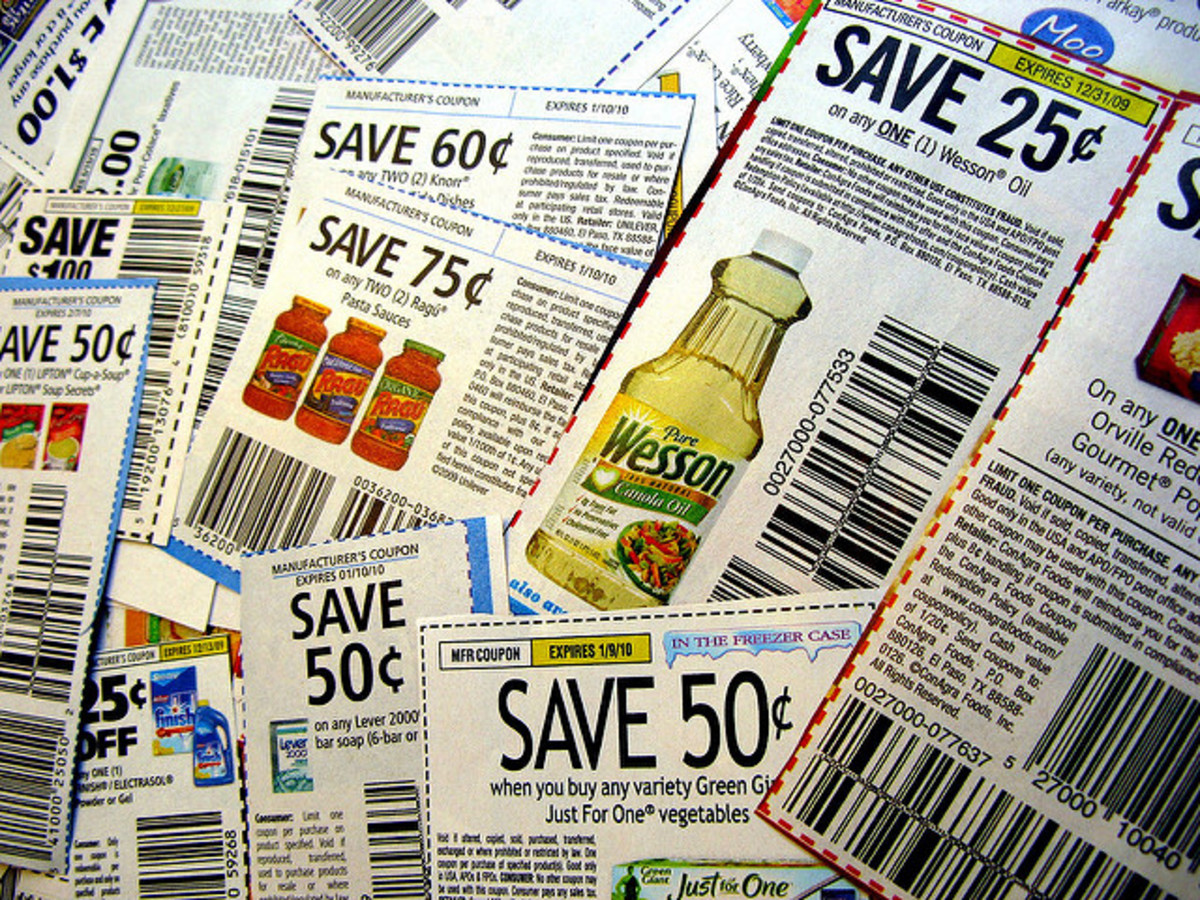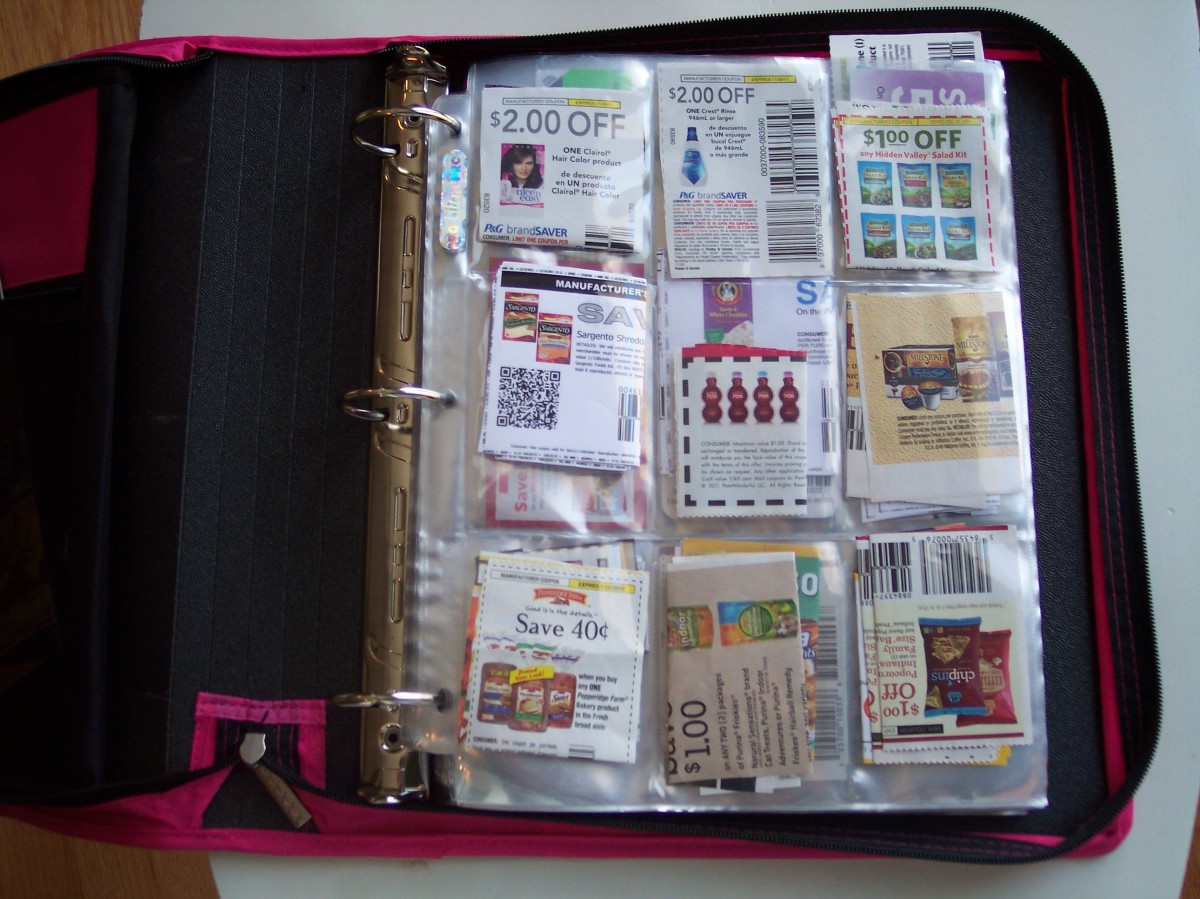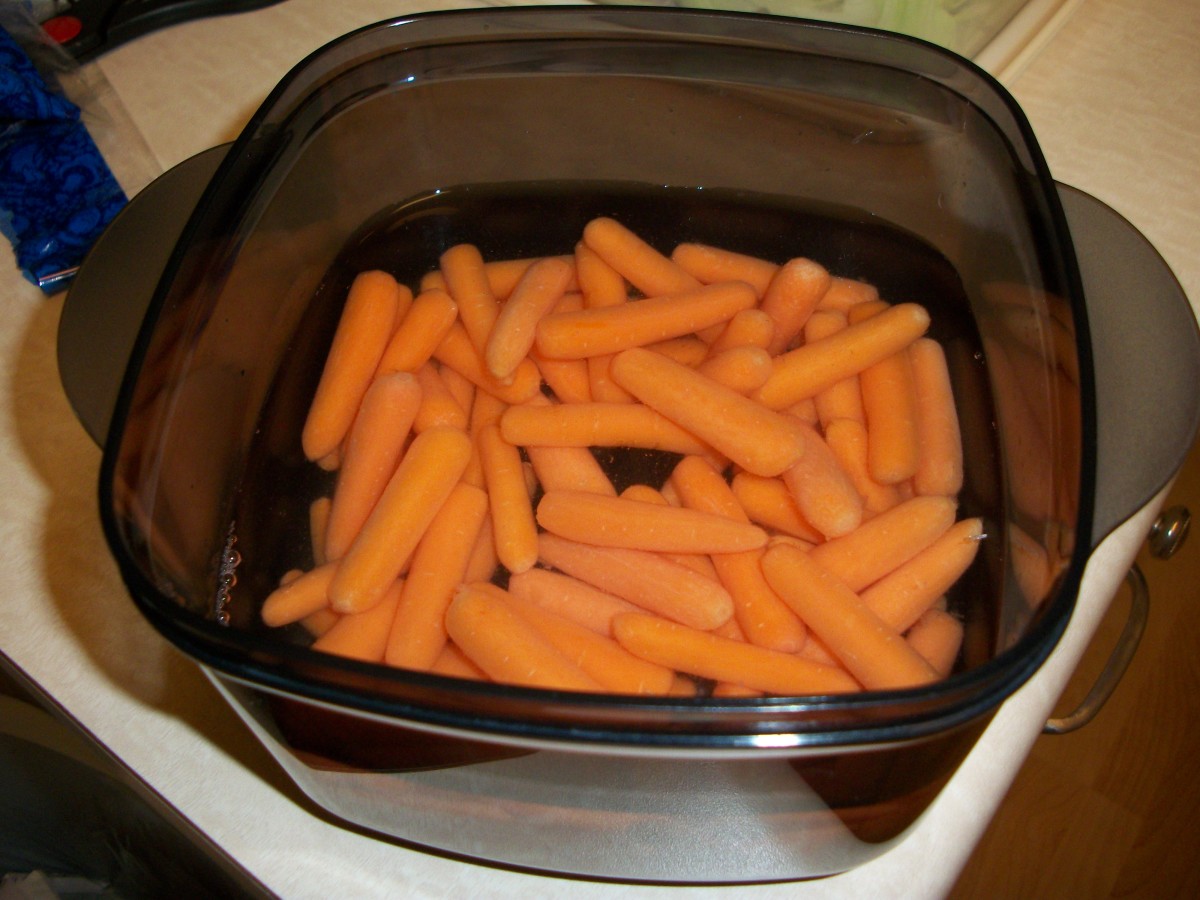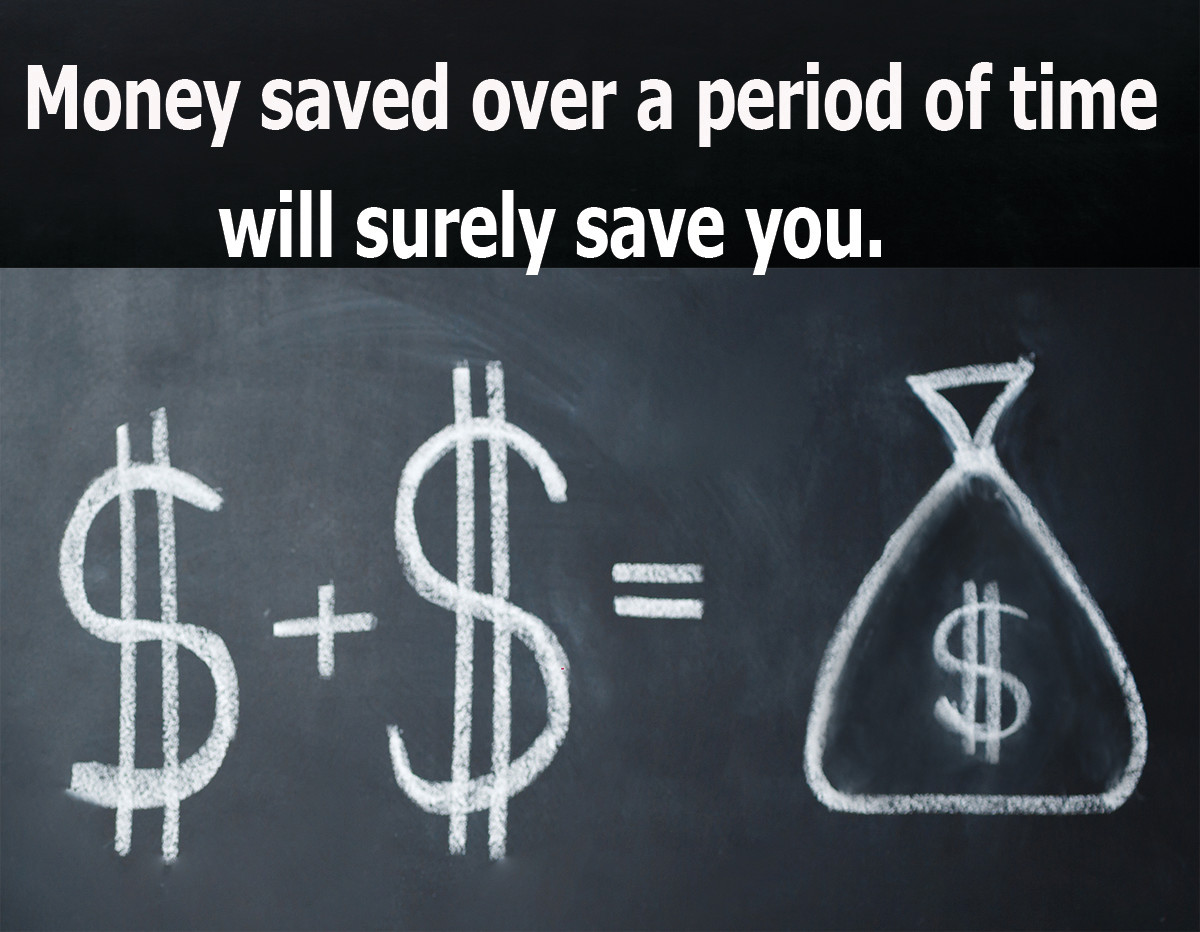- HubPages»
- Personal Finance»
- Frugal Living»
- Household Expenses
Grocery Savings: The Basics
Bring Home More (and Healthier) Food Within Your Budget.
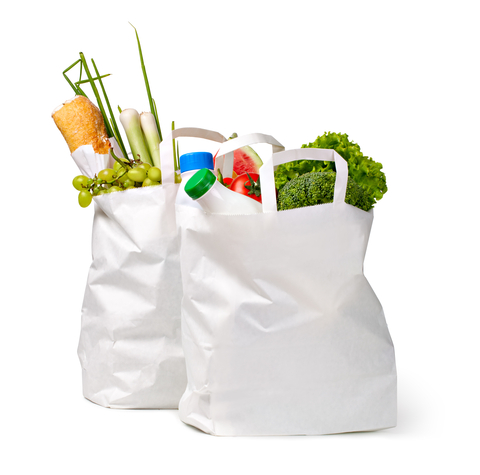
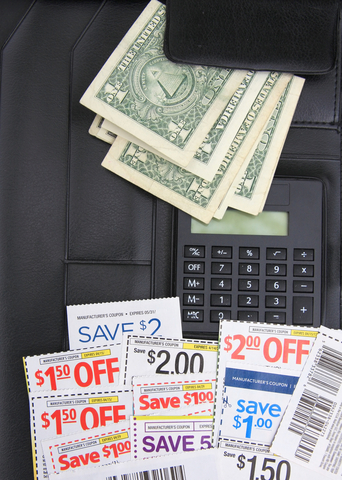
Coupons
One key factor to make any coupon savings program successful is to only purchase the types of products you would normally purchase or to try new items if they are extremely cheap after sales and coupons. A subscription to one or two Sunday newspapers will usually pay for itself if you are diligent. Coordinate your coupon usage with weekly sales found in your store(s) of choice and their weekly circular. Utilize multiple coupons on in-store multi-purchase deals such as those listed as 3 for $5.00, or similarly listed deals, to increase your savings. Organize your coupons neatly to ensure that they are used before the expiration date and to help you navigate the store more quickly. For more detailed coupon ideas go here.
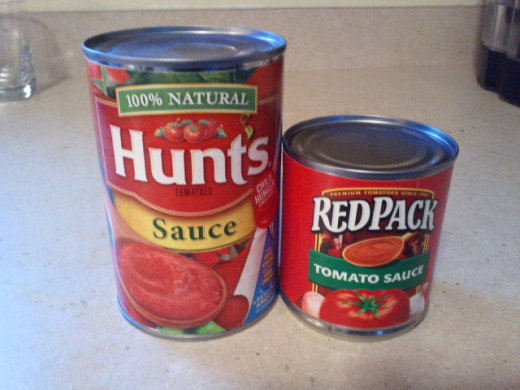
Size Matters
Sometimes bigger is better, but not always. A 40 ounce jar at $5.00 is a better deal than a 20 ounce jar at $2.75. But, a 6 roll package of paper towels at $4.50 could be more expensive than another 6 pack of paper towels at $5.00. How can that be? It is the principle of price per unit. If one package contains 6 rolls at 100 sheets each and the other contains rolls at 125 sheets per roll, then the package at $5.00 is actually a better deal. If you take the total price and divide it by the number of sheets, you find that the $5.00 package is less per sheet. This should be done with all measurements. Price per unit is usually listed right on the shelf where the product is found. A quick calculation on your calculator will let you know which is a better deal. Remember to factor in coupons when determining the cost of the item. Using this tip alone can save big money over the course of a year.
Buying in bulk on items that have a longer shelf live are worth it if you can coordinate store sales and coupons to get the unit price down below the price of the smaller packages. Sometimes purchasing multiple smaller package on sale with coupons is more cost effective than the bulk sizes. Always do the Math. Organizing your pantry or other storage areas will enable you to store more and ultimately save more. This also enables you to help others in need, as you can build a reserve of useful food and hygiene items.

Store Brands VS. National Brands
Sometimes store brands are less expensive than national brands. But, again, you need to calculate price per ounce and the availability of sales and coupons. Never assume that a store brand is less expensive than a national brand. Likewise, don't be unwilling to purchase store-brands if there is a savings and the quality is comparable. Read ingredients, calculate price per unit and compare taste or usability between items.Take a step back and ask yourself if you are only paying for a name. Some items are worth a little extra cash versus their store brand counterparts. We all have our favorites. Hellman's Mayonnaise is definitely better than even other national brands in my humble opinion, but take each product and decide for yourself. A good mix of coupon purchased name-brands and lower priced store-brands can yield a substantial savings on your grocery bill.
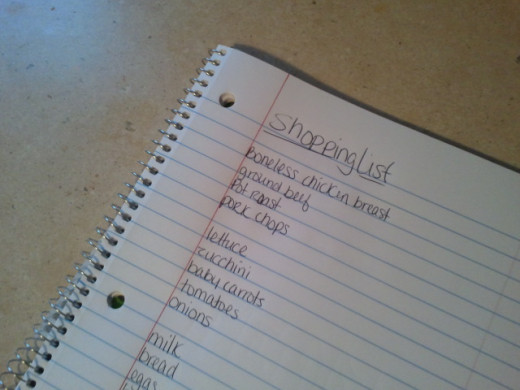
Meal Planning
Plan your meals out one or two weeks in advance. This allows you to determine specific items you need rather than random shopping which always leads to purchasing more, and therefore spending more. If multiple meals have shared ingredients, then you can buy in bulk or purchase multiples of an item and save. Planned meals also help reduce the need for "emergency" take-out, which can be a big budget buster. Always write down your shopping list to avoid purchasing above and beyond your list and your budget.
Don't purchase pre-packaged foods such as Rice-a-Roni or Hamburger Helper. It is much healthier and cost effective to buy rice in bulk and noodles on sale and then season and flavor them yourself. Simple seasonings are inexpensive and flavorful sauces and gravies are also easy make and much cheaper than pre-packaged. Making homemade soups and skews in large batches and freezing individual meals for later use is both convenient and more cost-effective than canned soups. These are also usually much healthier for you and your family.

